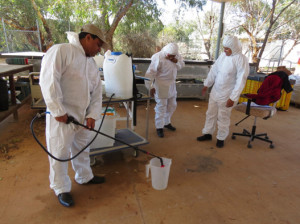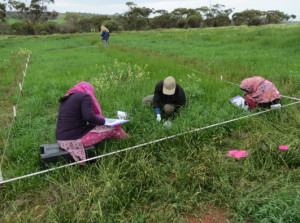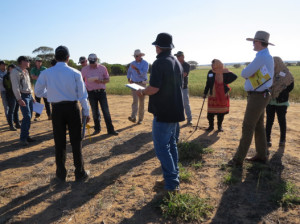

Safe and effective herbicide use in Bangladesh
November 23, 2014

There are concerns about the levels of use and application of herbicides in Bangladesh. To address this issue, the Crawford Fund has provided funding for training in the safe handling of herbicides. Through a range of activities presented by experts from DAFWA the trainees were exposed to theories, techniques and demonstrations across many aspects integrated weed control to prevent resistance development and identify cultivar tolerance. From this program , they will be able to write and deliver safe herbicide training programs to colleagues, labourers and farmers, service providers, traders and students.
Trainees learned that applying herbicides at specific times, following correct procedures increases its efficacy, reduces waste/drifts and prevents residual toxicity. They also learned to calibrate backpack sprayers for herbicide application.

In Australia herbicide resistance is a serious issue. This training created awareness among the trainees about herbicide resistance. Trainee learnt about herbicide rotation to reduce the development of chemical resistance in weeds.
Crop sensitivity to herbicides was discussed and ways to design and conduct herbicide tolerance trials were taught.
Most importantly the trainees learnt that using chemicals can be hazardous for human health, so safety protection measures need to be taken during the preparation, spraying and clean up stages. They were exposed to the Australian occupational, health and safety procedures and a variety of different equipment and techniques which they can incorporate into their workplaces.

The program included a trip to a major field day and exposure to GENSTAT which added another dimension to the trainees’ experience.
Overall knowledge about the weed management, agronomy, farming systems and biosecurity in WA will serve as source of knowledge in improving the research and extension in Bangladesh.




